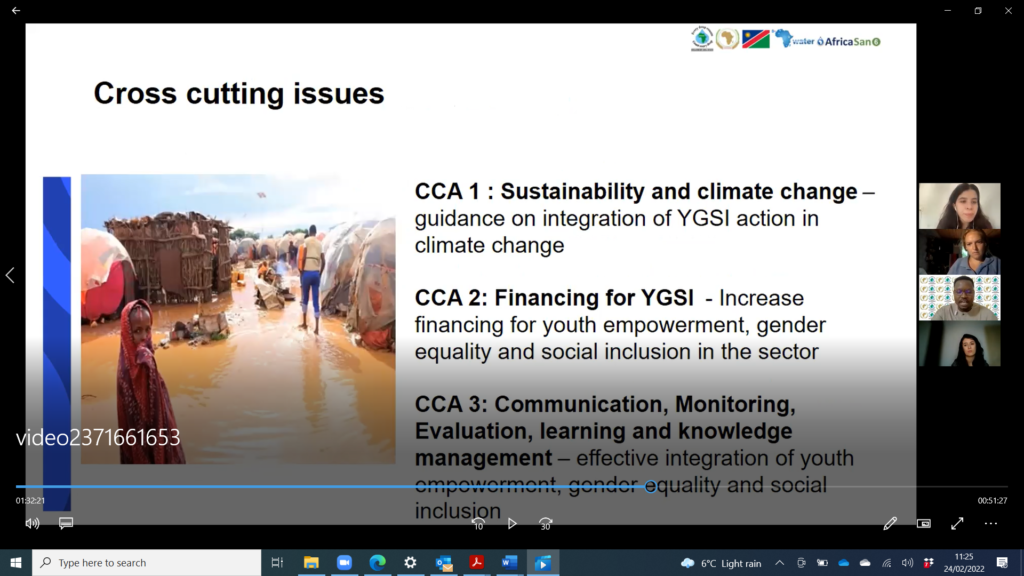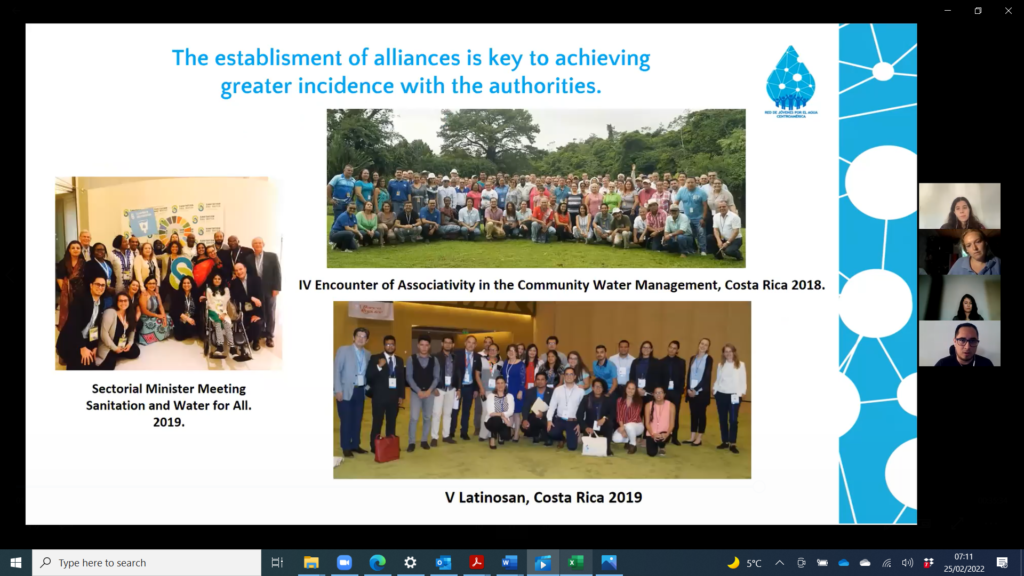The HR2W Youth Platform was established a year ago to act as a support for the numerous youth networks on water that already exist. Imanol and Gussie started the process by interviewing all the members, conducting online interviews and developing a declaration, with a view to finding out what it is that we can achieve as a platform that is complementary to the other youth networks. In this workshop-style webinar, Nada and Isa continue the programme in an active discussion involving leaders of youth networks and advisors from GIZ and the Women for Water Programme to highlight the challenges and needs of young people that are working in the water sector.
Based on the interviews and research conducted by the team in the last year, and the resulting declaration, Amanda Loeffen (HR2W) explained that the three main areas where Human Right 2 Water can support the Youth Platform are:
- To provide visibility and awareness of our members on the global platform – that is what we are aiming to achieve with these online events.
- To provide educational tools, knowledge and training about the human rights to water and sanitation – this is something that we are actively pursuing through our country coordinator programmes, and online webinars.
- And to help with funding and resourcing in whichever way that we can. We do not offer grants ourselves, but we would like to offer help in whichever way we can by helping to structure programmes, giving advice, and introductions to grant-making agencies. This event today goes part-way towards that goal, as our special guests from GIZ and WfWP are both seasoned experts in the resourcing of youth activities globally, and we are hopeful that they can steer you in the right direction for extra resourcing.
Tina Kanathigoda (GIZ) opened the discussion with a review of the German cooperation agency, and how they support development. Her presentation provided useful information for youth networks and how to raise support in local countries. Mariet Verhoef Cohen from The Women for Water Partnership also presented on the challenges for youth and especially young women. She encouraged young people that are attending the World Water Forum to seek out senior employees in key agencies, such as GIZ, and attend the youth activities in the booths. Both presenters participated in an active discussion with the young panellists on how to create more opportunities for young people in water.
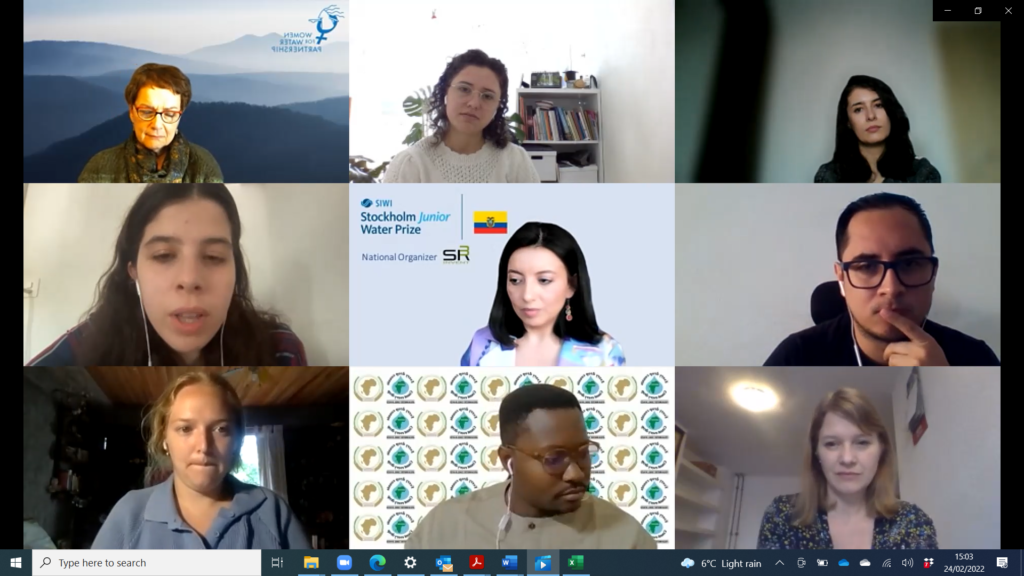
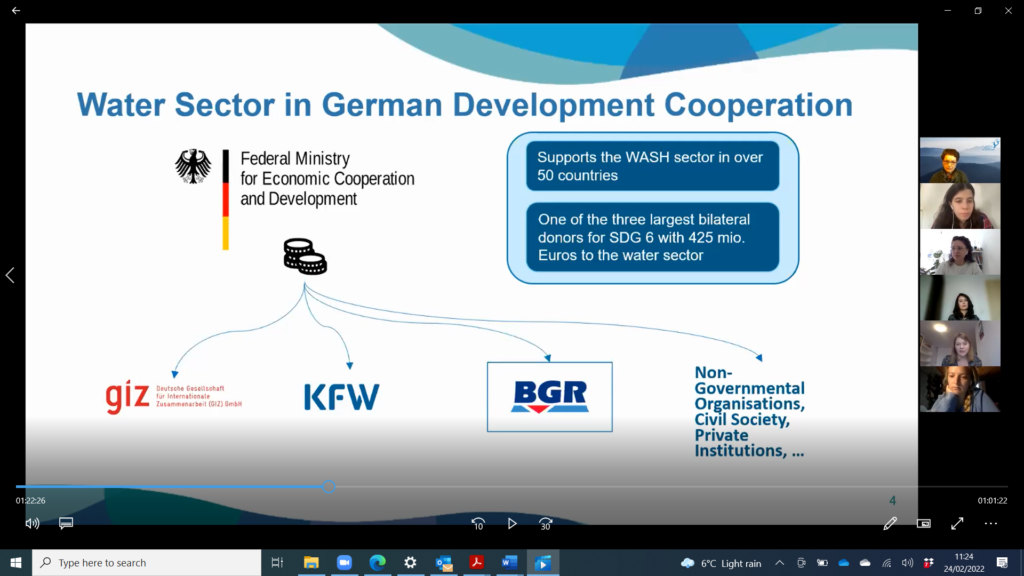
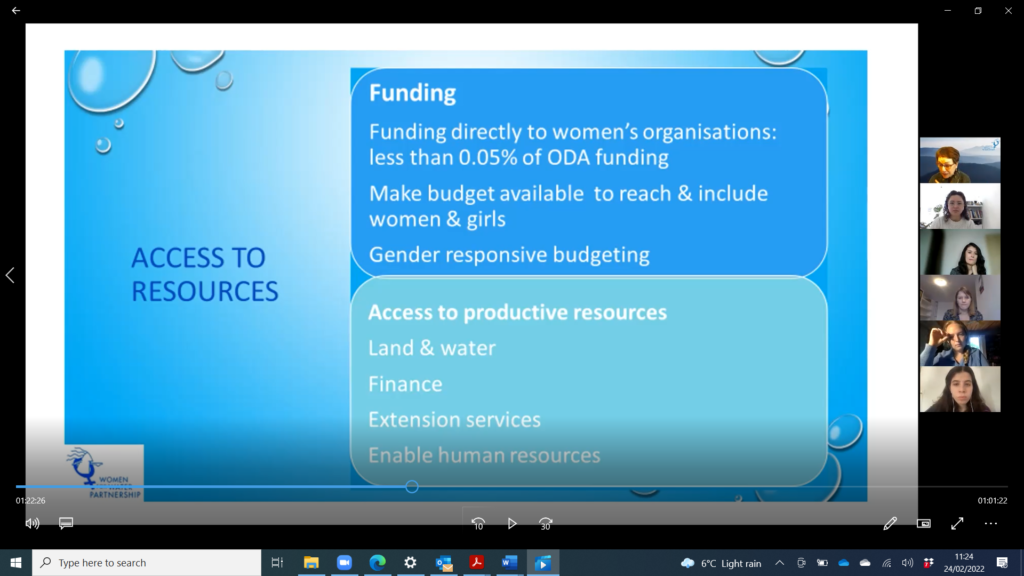
Our youth leaders each presented slides on their organisation, visions and goals, challenges and how they integrate the human rights to water and sanitation. The summary statements included suggestions for how to support their work. The statements heard were:
- keep young people interested, as we need to keep the next generation involved, not only the current ones
- be diverse, and attract youth from different backgrounds
- open new opportunities for young people to get involved – there are many that would be interested if there was an opening
- go to places where there are many young people already, like schools, youth groups, environmental groups, and tap into this energy
The poll conducted during the event was useful for establishing some of the youth challenges experienced by the youth networks included in the event. The audience was mainly composed of experts working in WASH and advocacy, of which 2/3rds were under 35 years old. The main obstacles for gaining resources and funding were that WASH is not seen as an important event, and that the funds are not allocated to local communities. The respondants felt that their own challenges to success were linked to lack of knowledge about the human rights to water and sanitation, and lack of local government support.
And finally, it was agreed that as a follow up, the group will maintain contact to see if some of these issues will be resolved.

